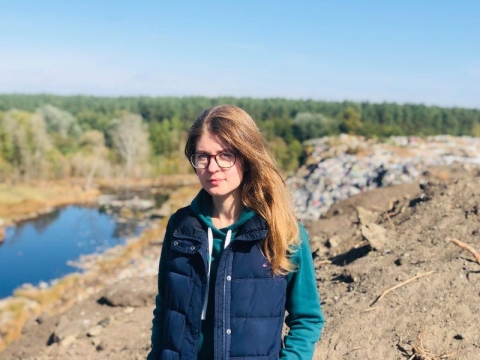As we take time off to celebrate the holiday season, we at ICFJ are thinking of our journalist colleagues in Ukraine who will get no break from covering a brutal war.
Since March, ICFJ has been helping our media partners in Ukraine and neighboring countries to document Russian war crimes, counter Putin’s propaganda, provide vital information to refugees, and much more.
As winter sets in and Russian missiles target civilians and wreak havoc on the energy grid, their work is getting even harder. We hope you agree that supporting journalists reporting on the war is more important than ever.
With backing from the John S. and James L. Knight Foundation and generous donors like you, ICFJ launched a grant program to fund reporting projects and development of innovative tools to uncover stories the Kremlin would prefer to keep hidden.
One of those grants went to Anastasia Rudenko and the Ukrainian media outlet she founded, Rubryka. With our support, Anastasia and her team are developing a project called EcoSolutions, which addresses a largely ignored outcome of the war: environmental problems that could have lethal consequences and endure for decades.

EcoSolutions has launched a site featuring environmental stories, and the team is finishing a Telegram chatbot that will give Ukrainians immediate and crucial information on issues such as water and air contamination, food security, and the fragile state of nuclear power plants.
“The scale of (environmental) impact was colossal,” Anastasia says. “War reporting may be the number one priority, but … we feel it’s important to produce other kinds of stories that are useful to people and help them.”
This is just one of the projects ICFJ is supporting in Ukraine, Central Asia, Russia and many more countries in the region. One grantee inside Russia said that ICFJ’s support not only enabled him to complete a project documenting anti-war protests but also to keep his embattled media outlet operating in dangerous conditions. (For obvious reasons, we cannot name him or his outlet.)
We can’t provide this vital support without your help. As the year comes to a close, I invite you to make a tax-deductible donation to support this crucial work.